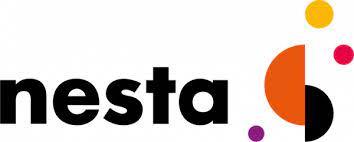
Supporting the home learning environment | Nesta
As part of the discovery phase for our fairer start mission in Wales, we wanted to understand more about the potential contributions that Nesta can make in the early years through our technical innovation practices. These practices include developing insights about what drives our behaviour, using approaches based on human-centered design, data science and analytics and robust evaluation to generate insightful evidence.
This has included short-term project opportunities to enable some of our practitioners to work alongside early years partners in Wales.
Save the Children project
In south Wales, we've been working with Save the Children on a project that aims to support the home learning environment for young children growing up facing the challenges of poverty. We know a home environment that supports learning and play has an important role in children’s development. Research has shown that what parents do is more important than education levels or social background when it comes to children’s outcomes. However, we also know poverty impacts access to resources and opportunities and can create high levels of stress for both children and parents.
Save the Children has a long-established model of supporting families with emergency grants. One scheme in particular has evolved to provide families with both financial assistance and age-appropriate learning and play resources. Save the Children was interested in exploring whether the reported positive benefits of this one-off intervention (grant plus resources) could be further developed with additional activities and support for families to achieve greater impact.
The plan was for Save the Children to work with a group of local frontline partners to build on the resources and grant. This would involve co-creating additional support with families e.g. new groups for parents. The project will work with 60 families, as well as local community-based partners including home visiting volunteers, refugee and asylum seekers support, a community development organisation and parenting support services.
What we did
Nesta and Save the Children set up a learning partnership to explore the kinds of learning and evaluation approaches that might suit this project. Nesta acted as a “critical friend” in the design phase from a technical perspective, and Save the Children brought challenge and insight based on its extensive experience of working with families. We agreed that the output would be a learning toolkit, including evaluation tools that could be used by Save the Children and their local partners to support the evaluation of the new co-created interventions.
We were keen to learn more from Save the Children and its partners’ rich experience of working directly with the families who are at the heart of our fairer start mission. The project also presented some really interesting questions relating to the home learning environment (such as, how can we build on material assistance to families to support longer-term behavioural changes?), as well as some technical challenges (how to create enough consistency to enable evaluation when a project is working with different delivery partners and different co-created interventions).
We agreed together that we wanted to focus on the relationship between stress and parents’ capacity to support their children’s learning and development. We also reflected on the needs and interests of different stakeholders, and agreed that our priority was to find ways to share families’ voices and experiences through the evaluation tools we developed.
We worked together to develop a framework (logic model) to help us track each part of the different interventions we were exploring - the grant, the learning and play resources and the new interventions that partners will develop. We identified some of the benefits that families might experience at different points in the project. The different partners were going to design activities based on their services and the families they work with, so this framework provided clarity, consistency and a shared approach across the project.
We developed pre and post interventions surveys that can be easily used in the field to support understanding of the perceived changes the combined interventions have made to family stress, the home learning environment (both learning activities and social routines), and parents’ engagement with and perceptions of partner services. We also developed a flexible qualitative interview guide to support the evaluation team to gain a deeper understanding of parents’ experiences and preferences.
The surveys drew on existing scales that measure stress and the home learning environment, but the team raised questions about some of the original scales. They pointed out some of the assumptions they contain and their appropriateness for our context e.g. that parents are stressed because they are parents rather than because of poverty. We discussed the challenges of asking frontline practitioners to use language from the original scales directly with families, and the risks of transferring assumptions to families. We agreed that the measures needed to be adapted for our evaluation context.
Rachel Wrathall, Senior Partnership and Practice Manager for Save the Children in Wales, said: “Through years of working with families experiencing poverty, we knew instinctively that children and families’ basic requirements needed addressing before wider support could be put in place. With this project we set out to formally evaluate the impact of a material grant plus a sustained home-learning intervention, gathering evidence of ways in which vulnerable families can be better supported. We were grateful for the advice and guidance of Nesta who took our vision and fostered open discussion about the formal opportunities for learning. We look forward to delivering the research and sharing the findings with partners over the coming months.”










Add new comment